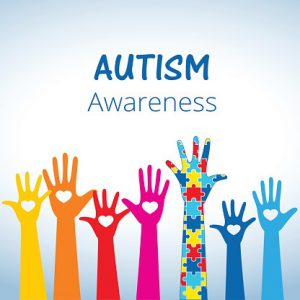Autism or autism spectrum disorder (ASD) is characterized by a range of conditions that can significantly impair behavioral, communication and social skills.
 There are three different types of autism spectrum disorders; they include Classic Autism, Asperger Syndrome and Pervasive Developmental Disorder. Each condition differs by the severity of symptoms.
There are three different types of autism spectrum disorders; they include Classic Autism, Asperger Syndrome and Pervasive Developmental Disorder. Each condition differs by the severity of symptoms.
According to the Centers for Disease Control and Prevention (CDC) children or adults with ASD may display the following symptoms:
- Having delays in speech and language skills
- Not responding to their name by 12 months
- Avoiding eye contact or wanting to be alone
- Having difficulty understanding the feelings of others
- Displaying unusual reactions to the way things look, feel, sound or smell
- Repeating actions over and over
- Not looking at objects when other people point to them
- Repeating words or phrases in place of normal language
- Preferring not to be cuddled or cuddling only when desired
- Having trouble adapting to changes in daily activities
- Displaying behaviors such as flapping hands, spinning in circles or rocking the body
The most obvious symptoms of ASD typically emerge between two to three years of age. However, in some cases, they can be identified earlier.
There are no definitive causes of ASD but it has been discovered that there are several factors that can make a child more likely to have the disorder. The CDC asserts the following findings:
- Most scientists agree that genes are one of the risk factors that can make a person more likely to develop ASD.
- Children who have a sibling with ASD are at a higher risk of also having ASD.
- ASD tends to occur more often in people who have certain genetic or chromosomal conditions, such as fragile X syndrome or tuberous sclerosis.
- There is some evidence that the critical period for developing ASD occurs before, during, and immediately after birth.
- Children born to older parents are at greater risk for having ASD.
Diagnosing ASD can be difficult as assessments are primarily based on behavior and development. There are two stages of diagnosis: the developmental screening and the comprehensive diagnostic evaluation.
Currently, there is no cure for ASD but research shows that early intervention services and treatment can improve development in children.
April is National Autism Acceptance Month, during this time, Jamaica Hospital Medical Center hopes to promote autism awareness and acceptance through education. The hospital proudly supports the nationwide goal of building a greater understanding and acceptance of ASD.
All content of this newsletter is intended for general information purposes only and is not intended or implied to be a substitute for professional medical advice, diagnosis or treatment. Please consult a medical professional before adopting any of the suggestions on this page. You must never disregard professional medical advice or delay seeking medical treatment based upon any content of this newsletter. PROMPTLY CONSULT YOUR PHYSICIAN OR CALL 911 IF YOU BELIEVE YOU HAVE A MEDICAL EMERGENCY.
